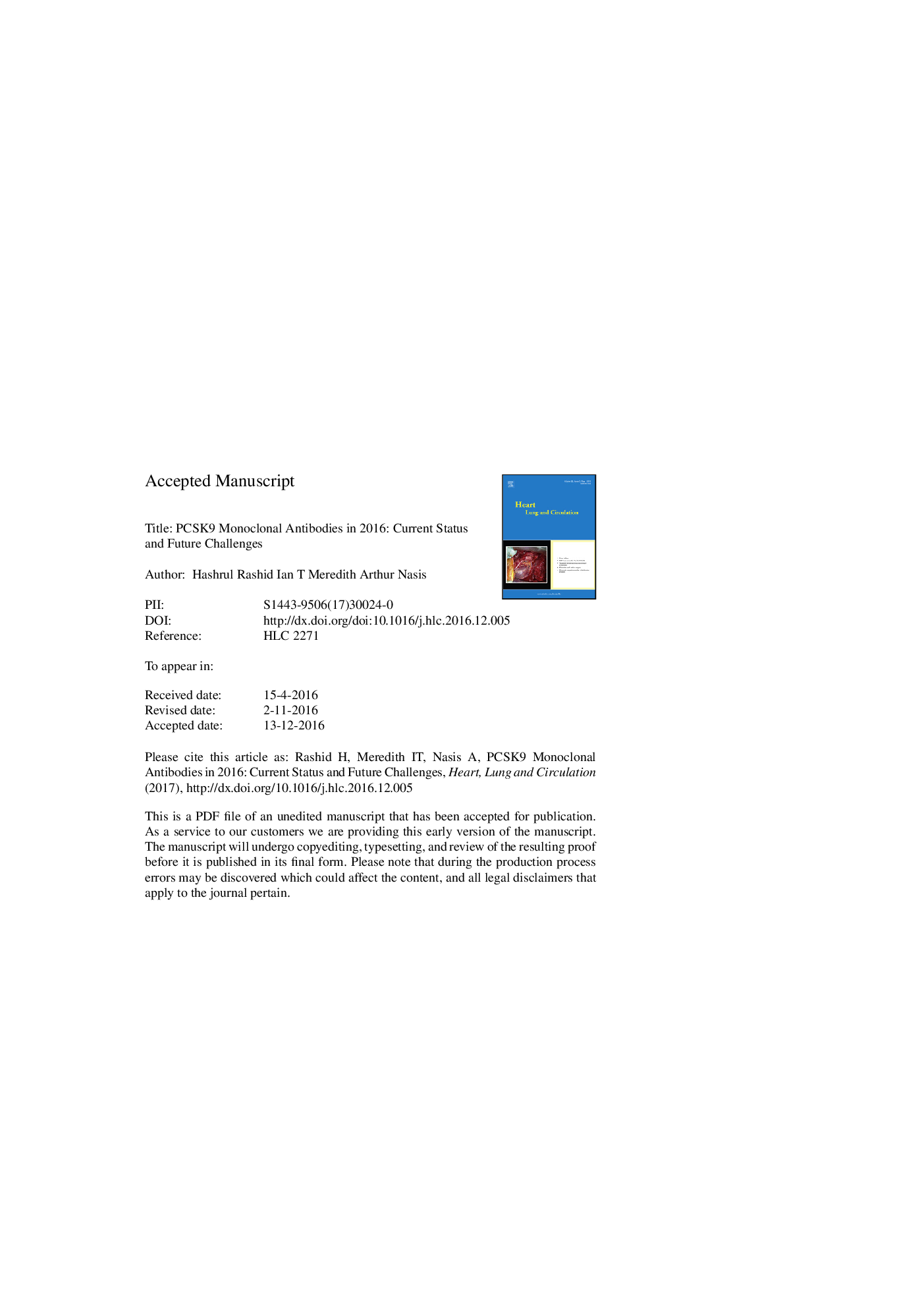| Article ID | Journal | Published Year | Pages | File Type |
|---|---|---|---|---|
| 5602977 | Heart, Lung and Circulation | 2017 | 38 Pages |
Abstract
Cardiovascular disease remains the leading cause of morbidity and mortality in developed nations, with elevated low-density lipoprotein-cholesterol (LDL-C) levels being a major modifiable risk factor for coronary atherosclerosis. While lipid-lowering therapies such as statins are effective in lowering LDL-C, a proportion of patients do not achieve target LDL-C goals with statins or are intolerant to statins necessitating other treatment options. Proprotein convertase subtilisin/kexin type 9 (PCSK9) inhibitors are a new class of agents that reduce LDL-C beyond the maximum achievable LDL-C reductions with statins, and have been well studied in different patient groups. However, there are concerns regarding their potential adverse effects and cost, given that morbidity and mortality benefits have not yet been demonstrated. This state-of-the art review provides an overview of the development of PCSK9 inhibitors, the evidence regarding their clinical efficacy in specific target populations, and highlights future trials and challenges that need to be addressed before PCSK9 inhibitors are widely adopted into contemporary clinical practice.
Keywords
ACSFDABiweeklyLDL-RQ4WQ2WSREBP2MACEPCSK9HMG-CoALDL-CStatinsmajor adverse cardiovascular eventsIntravenoussubcutaneousAcute coronary syndromecardiovascularmonthlyPCSK9 inhibitorsweeklyFamilial hypercholesterolaemiaProprotein convertase subtilisin/kexin type 9Low-density lipoprotein cholesterolLow-density lipoprotein receptor
Related Topics
Health Sciences
Medicine and Dentistry
Cardiology and Cardiovascular Medicine
Authors
Hashrul MBBS, Ian T. MBBS, BSc, PhD, FRACP, FCSANZ, Arthur MBBS, MD, PhD, FRACP, FSCANZ,
